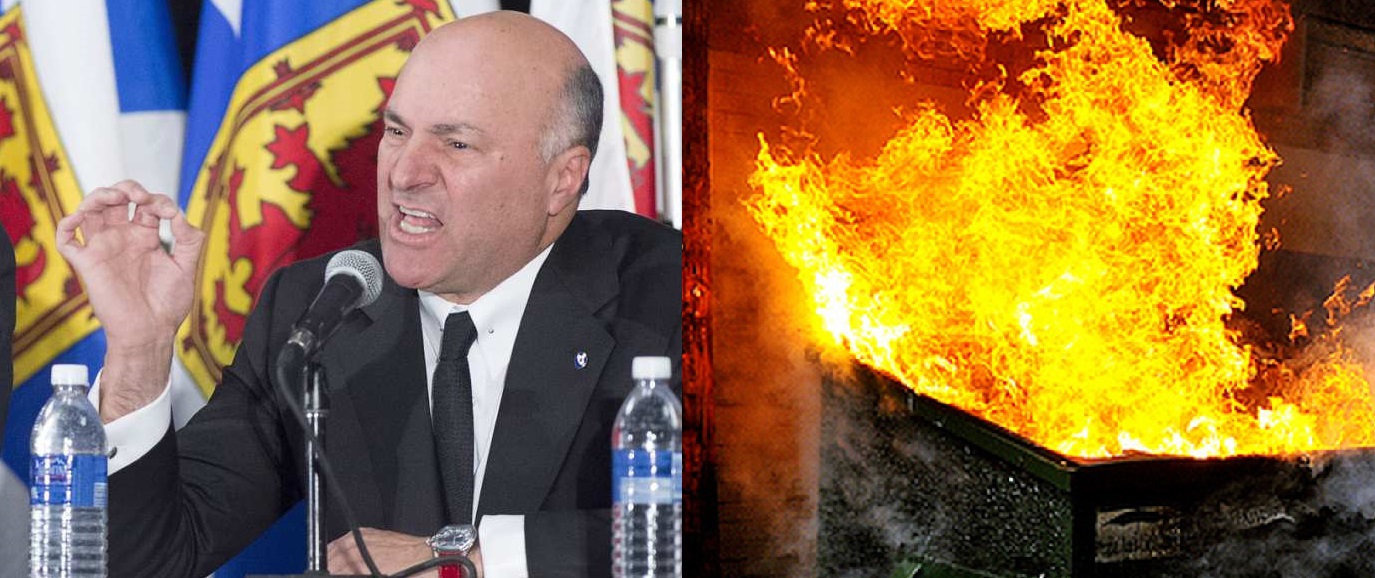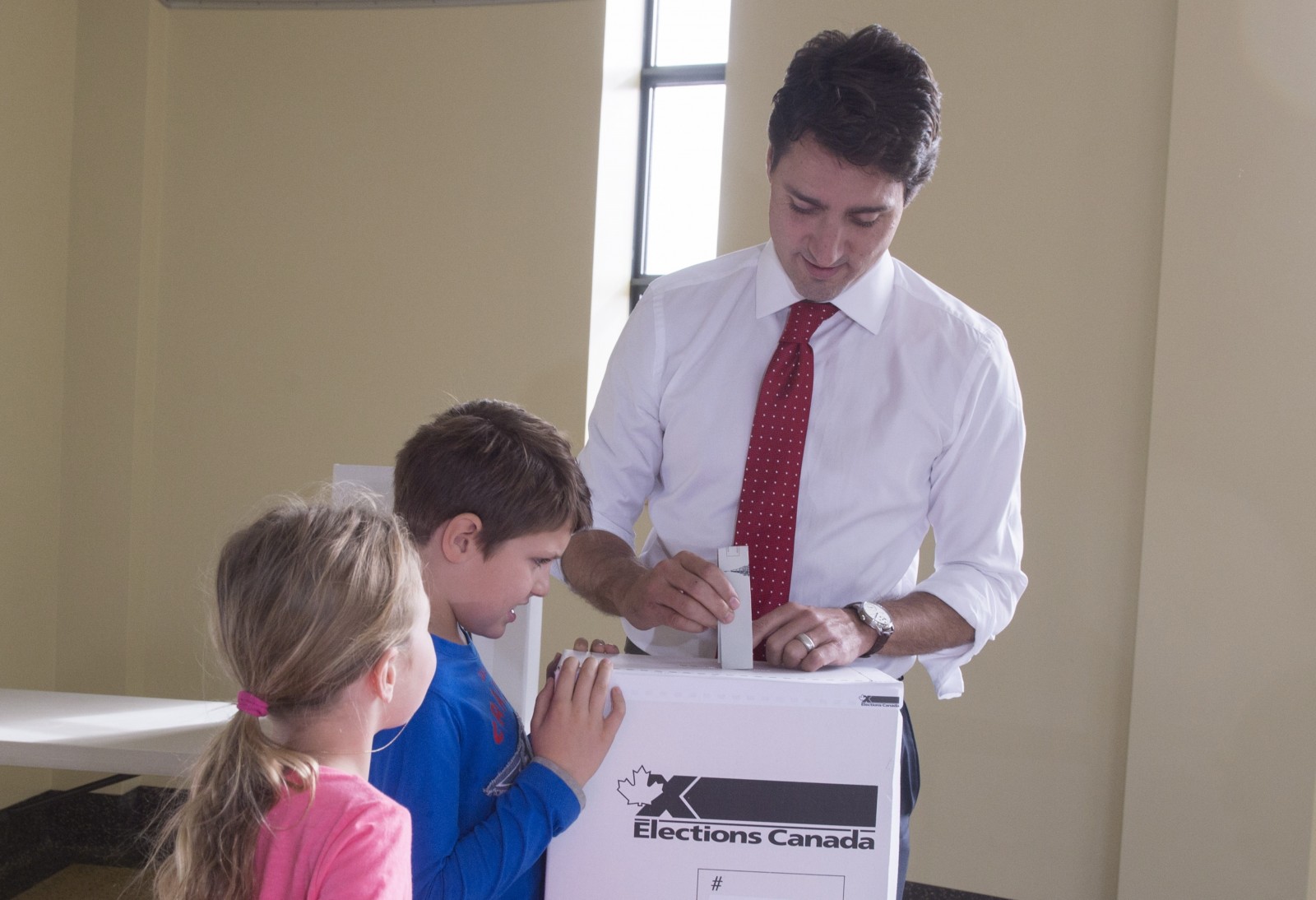Subscribe to the podcast at UnwindMedia.com/SeedsOfThought.
Category: Mind Grapes

Geeking out in Wyoming – My 2017 Eclipse Story
To celebrate the launch of the new Thought Grapes YouTube channel and the new Seeds of Thought podcast (including the first episode here), here’s a collection of my experiences from Idaho/Wyoming before, during, and after the 2017 solar eclipse. If you want to see the photos and videos in this video, I’ve created an album on Google Photos.
Enjoy!
The Adorkable Misogyny of The Big Bang Theory – Pop Culture Detective
I’ve taken a video from this channel as a jumping-off point before, I’m back to do it again. Pop Culture Detective just keep bringing up such great points of oddly misogynistic characters and story-lines in popular culture, that I can’t help but pick up exactly what they’re putting down, and examining new TV and movies I watch with a more thoughtful view.
The video embedded here mainly discusses the Big Bang Theory as its example of male characters who are part of the problem in a male-dominated culture that tries to gain power by belittling the women around them (women aren’t the only groups subjected to this kind of treatment in popular culture, or on this show in particular, but let’s save that for a future discussion).
Having gone to grad school with as many or more extremely talented female scientists as I did male ones, I can definitively say that gender should absolutely not be a factor in deciding who can be successful in any particular career path. I was fortunate to not have seen any of this directly in my lab, but working in grant administration now, I see that gender bias is a huge focus of federal science funding, especially as one rises in the ranks of academia.
It’s jokes or insults at the expense of someone that focus on traits that are innate to a person that really get to me the most. Denigrating or belittling someone based on gender, sex, race, sexual orientation, or other traits that either come pre-determined at birth, or are fully determined internally later on in life is an attempt to exert power over someone, and generally nothing more.
There is a big difference between making a joke about somebody based on a stereotype – taunting someone saying “you’re gay” or “be a man” – and making a joke subverting those stereotypes or tropes, even if the joke itself hinges on an inferred call to those stereotypes.
This past weekend, I was watching an episode of Friends subverts expectations about homophobia. The show on the whole, especially in the early years, is actually pretty bad about this, and many jokes in this vein don’t hold up all that well (sorry, Chandler). But, in this episode, Ross and Joey fall asleep on the couch together while watching Die Hard.
When the two wake up, they realize they took a nap together, and both are horrified at the prospect of it ever coming up to the group. However, as the episode goes on, both Ross and Joey realize more and more that the nap they took together was one of the best naps they’d ever had. Even though their friends finding out about this might lead them to be ridiculed, the two good friends are considering planning another (completely non-sexual) nap together.
At the very end of the episode, Joey tells Ross he’ll be taking a nap in his apartment upstairs, implying that he would be taking a nap and that Ross would be welcome to join. Joey leaves, and a few seconds later, Ross surreptitiously follows him. I really love this depiction of intimate male friendship in popular culture, especially in the late nineties/early 2000s, because you just didn’t see it that much.
Both Joey and Ross were willing to potentially be ridiculed for napping together, but they valued the experience so much that they did it anyways (and based on the final scene, both friends seemed to be satisfied by the nap). The fact that the very end of the episode involves Ross and Joey being confronted by the rest of the friends upon waking up tells me the writers weren’t all the way there yet, but Ross’ reaction at the end tells viewers and the rest of the gang that both he and Joey knew what they were doing.
I love that moments in pop culture like this still happen, and it’s refreshing to see more and more shows and movies tackling personal moments and stories from a wide variety of viewpoints. I think there’s hope that one day characters like those on the Big Bang Theory will not be misogynist stereotypes, and that the writers won’t feel like they need to make characters assert dominance over one another to get laughs anymore.
The Amazing Way Bicycles Change You | Anthony Desnick (TEDx)
I don’t know if I fully agree that riding a bicycle is for everybody, or that it’s the best possible treatment for any condition. However, I do know that, for me at least, riding a bike to and from work for the last several summers has given me more energy, revitalized my health and the way I feel, and helped me to lose 60 pounds since 2015.
While I was visiting family in Calgary for the last couple of weeks, I had the opportunity(ies) to drag my dad and cousin out for bike rides, something neither had really done this year after commuting by bicycle previously. Both were (hopefully) motivated by my eagerness to get out and enjoy the sunshine, and getting the first ride of the season in always helps make subsequent rides easier. Keeping that in mind, I hope both will continue biking when they can, because the benefits of incorporating cycling in to your everyday life are immense!
*The most striking statistic from this video is that in the Netherlands (and other Nordic countries), they consider every euro invested in bicycle infrastructure to be worth 8 euro in returns across the economy.
**As mentioned in the video, perhaps the *most* striking statistic should be the number of people killed in car crashes each year (33,000 in the US alone), but for some reason we accept this in society.
 Photo by: Alex Hayward
Photo by: Alex Hayward(More) Thoughts on Society
If the government raised my taxes 1% per year to give an increasing basic income until such a time that social programs and poverty improved until the point that the system supported everybody, we could fix this thing in 15-20 years, tops.
Anything else is just irresponsible.
Civilized society has to provide the basic needs for all its citizens to exist and develop. Education, health care, shelter, food, these should not be things anybody goes without.
Anything else is second-rate.
Retirees get a fixed income and many continue to work as long as they are able. Why is it so damaging for all of us to enjoy that same opportunity throughout our lives? Why do you have to work for 30 years before society deems you worthy of that respect?
These problems have solutions *if* we can start worrying about money, power and status AFTER we have taken care of the poor, weak, and forgotten.
If these are radical ideas to you, it may be worth considering what you value in life.
Fantastic Masculinity in Pop Culture
I’ll be honest, I did not see the first movie to come out in the Harry Potter Expanded Universe, Fantastic Beasts and Where to Find Them. I haven’t had time to see many movies lately, and I’ve only really made time to be a Marvel completionist for the last couple of years (along with a few other movies here and there).
However, since watching the video below, discussing Eddie Redmayne’s nuanced and emotional portrayal of the wizard protagonist Newt Scamander in Fantastic Beasts, I’m really eager to watch this movie in its entirety.
I love a good action movie, and the first 8 Harry Potter movies rarely failed to deliver at least some compelling action and story. I enjoy superhero movies for the same reason, but most of them are missing a certain something you don’t see very often, if at all, in popular culture.
Masculinity is a narrowly defined set of personality traits that are defined in popular culture mostly in stereotypes and shallow characters. There are male characters who are able to break out of these moulds, but in general, men in the TV and movies are tough, strong, and unemotional. Departure from those traits is considered a departure from the masculine.
The same idea, with a separate set of traits, exists for female characters in the same way. I consider both stereotypical depictions, male and female, to be generally unfair, but for very different reasons.
In Fantastic Beasts, at least as far as I can tell from the Pop Culture Detective video above, Newt is allowed MUCH more emotional and physical leeway in his ‘masculinity’ than male protagonists are normally afforded. He’s not shown as physically strong, and he shows compassion and avoids confrontation where possible. I’m only going to go into a small portion of what the video discusses, but I think a lot of the same reasoning applies.
In the same vein as with Fantastic Beasts, one of the reasons I think 2017’s Wonder Woman was such a refreshing departure from the normal superhero fare is Gal Godot’s incredible portrayal of Diana Prince. She is a fearless warrior who doesn’t back away from a fight, and she’s strong but she deeply cares about and values life and peace. She’s not your typical woman, instead she’s somewhere in the grey area between ‘male’ and ‘female’ archetypes.
Personally, I believe the reason these characters both resonate so strongly with me is that I have always found the ‘male’ archetype wholly unsatisfying to draw aspects of my personality from. There’s nothing wrong with being a beer-swilling, weight-lifting, punch-throwing dude, but that has never been me.
I want to watch chick flicks, I have a good cry when I feel bad, and I’m happier supporting my team from a distance in a fight than engaging in battle directly (whether metaphorically or literally, like in sports). I’m not embarrassed or emasculated if challenged or proven wrong, but I really do enjoy watching sports and showing off my mental or physical strengths.
I’ve met a large enough sample of people in my life to realize that it’s very rare to find somebody who fits entirely in to the ‘male’ or ‘female’ type, and that’s the way I would expect it to be. Life is full of gradients, and most people don’t live in the extremes.
It’s extremely satisfying to see characters in popular culture defying stereotypes and living in grey areas, because it gives people who see them ‘permission’ to behave in non-typical ways, and shows other people that there is more to the human experience than black or white, male or female, and red or blue. Life is full of nuance, and the more people see it that way, the better off we’ll all be.
Fox News is even grosser than you thought
Wow, this video from Vox starts out slow, in the wake of Bill O’Reilly’s (apparently thoroughly well-deserved) removal from Fox News. Once it gets going though, the clips shown to illustrate the rampant sexism, misogyny, and inappropriate comments from many hosts and talking heads on Fox surprised even me (somebody who is well aware of the ridiculousness of Fox News).
If you don’t make a habit of watching the network (and I hope for your sake that you don’t), it’s worth watching the video just in case you weren’t convinced there is a pattern of sexist behaviour spanning many different shows.
 A couple of examples of dumpster fires.
A couple of examples of dumpster fires.That Washington Post Story About Canadian Democracy
A couple of days ago, the Washington Post published an opinion piece about the actual state of democracy in Canadian government that I disagreed with. I didn’t have the knowledge or time to back that up in any kind of concrete way, but most of it just didn’t make any sense.
One day later, Drew Brown at Vice published a piece that directly responded to the opinion of J.J. McCullough, and I am hoping to point people to that piece, since it did such a great job of thoroughly and thoughtfully debunking almost every single thing I felt was wrong in the original letter.
I know in my heart that while Canadian government is not perfect (as Drew readily admits too), it takes a massively crooked perspective to twist words like J.J. does to make Justin Trudeau and his party seem like dictatorial despots.
Please go and read the Vice News piece: We Have Problems With that Washington Post Story About Canadian Democracy for some refreshingly neutral information on the strengths and weaknesses of the Canadian parliamentary system. It’s worth your time.
PS. I’m not going to get any timelier chance to use the image in the header again, so you’re welcome.

Actual examples of dumpster fires.  Image by: CKNW Radio
Image by: CKNW RadioThis is Some Bullshit: An Update on Canadian Electoral Reform
Last time we had a conversation about electoral reform on this site, it was in the fall of 2016. The post came in the aftermath of the publication of a report from an all-party Special Committee of the House of Commons that was specifically tasked with studying options for electoral reform in Canada.
This month, the Liberal Party published a new document in response to an official electoral reform petition submitted to the Government of Canada’s petition website. The response effectively summarizes and clarifies the justifications the Liberals are using in abandoning their campaign promise of electoral reform.
On the face of it, the current Liberal majority government might deserve a little credit for looking into electoral reform at all right after sweeping in to power in 2015. However, there are a few facts in that election that show exactly why the Canadian system needs to be reformed:
- While the Liberals did win a majority of seats in Parliament in the last election, all three left-leaning political parties are fundamentally pretty close. In this system, where a minority government is worse than useless, voters on the left tend to align en masse, to the detriment of the other left-leaning parties. In 2015, it was the Liberals that benefited from this.
- In the previous (2011) federal election, the NDP won a third (103/308) of the seats in Parliament, nearly tripling their seat count from 2008. In 2015, that seat total was back near where it started, at 44 seats. This comes from the aforementioned mass movement of voters (leaving Liberal and PQ in 2011, moving back to those parties in 2015) attempting to counter the unified Conservative voting block.
- Even though the Liberals did win a majority of seats in Parliament in 2015, the party only managed to win 39 percent of the vote, a clear sign of a broken system.
- Finally, the fact that this election was described as a ‘change’ election, and whether you believe that narrative or not, people did want changes to the political landscape, and that includes the way elected officials are chosen.
One of the main points of the Liberal response to electoral reform is the idea that in consultation with MPs, voting experts, and voters, no clear alternative to first-past-the-post presented itself. Therefore, the report concludes, the best option at present is to change nothing, as though a new clear alternative voting system will suddenly present itself at some point.
This is some bullshit.
Electoral systems are like climate science. They do not care if you believe in them. A good system doesn’t get your party into power unless you represent a majority of voters best. A bad electoral system may elect the best-suited party or candidate, or it may not. A key point here is that when the Liberals promised electoral reform, they didn’t promise to look in to other options for holding more representative elections. The party platform specifically promises that the 2015 election would be the last one held under first-past-the-post, and that a plan to do better would be presented to Parliament within 18 months of the election.
One of the biggest problems in politics today is that there is no motivation for a party not in power to present a clear policy alternative to the ruling party. The Liberals ran on ‘NOT first-past-the-post’, but never actually came up with anything to replace it. This is a clear sign the party didn’t want to reform the system, they just wanted to benefit from its flaws in the election.
Another example from the last year is the Republican-proposed American Health Care Act, which failed miserably even among hard-line conservative Republicans. This is because for at least 7 years, Republicans in the US House of Representatives ran and voted on ‘NOT Obamacare’, without spending much time (it seems) thinking about a health care system that actually stood a chance of passing through the Republican legislative branch.
One possible reason for this massive disconnect between parties in power and opposition parties is that an increasing amount of time in a politician’s day (especially one trying to get elected) is spent campaigning (fundraising). After becoming a member of the Liberal Party, I saw first hand just how many emails and phone calls active voters get encouraging them to donate as much money as possible to the Party.
These emails make it very clear that the goal is to ‘beat’ the Conservatives, but fails to make the link between money raised campaigning and actual changes in vote tallies. I have never contributed any money to a political campaign, because I have yet to be shown a good reason to do so, or even why campaigns raise money (other than to allow them to campaign even more).
Even campaign ads, on television or on lawn signs, don’t typically give reasons why voters should choose a given candidate, just that voters should vote for their preferred party, whoever the candidate is. Given massive fundraising totals, it does seem like this tactic works pretty well, though it isn’t very clear why.
It could be that parties have decided that the optimal strategy is to make any political opponents into nemeses, positioning them as enemies in the legislative battlefield. While this might work in a two-party system, positioning the NDP as a bad choice compared to the Liberals seems counterproductive at best. With multiple parties and several decent choices for small-L liberal voters in abundance in Canada (and elsewhere), it seems as though a combination of electoral change and some cooperation would lead to some real social progress in the near future.
The obvious shortcomings in the current Canadian political system are well-described and well-known. The Liberals are in power with 39 percent of the vote. The Green Party consistently gets 4-6 percent of the vote, but has never had even one percent of seats in Parliament, almost certainly because any splitting of the vote on the left would give the Conservative Party a plurality of seats.
Any of several changes to the electoral system would undoubtedly balance voting and hold big parties accountable to voters in a consistent way. If asked, I have no doubt MPs and voters would choose a different voting system, but that option was never presented by the Liberal Party.
A referendum would be no better than the nationwide mydemocracy.ca poll in terms of informing the government of what voters want. Because voters aren’t necessarily even aware of what the options are, an all-party committee that discusses what changes to make, as opposed to whether or not the system needs reform. With all parties at the table, at least some discussion can be had, in order to make the system more representative, no matter what changes are made in the end.
Politics
has becomeis a horse race, with winning election being the main goal. This destroys most opportunities for meaningful debate around what’s best for Canadians and the world, and removes incentives to compromise, instead rewarding efforts to ‘win’ political points.The Liberal Party should at least put in some effort in if they actually want to prove that a clear majority of the Canadian people actually don’t want reform. Saying that Canadians aren’t in agreement over what system to use is irrelevant when it’s so clear we are all ready for some Real Change.


